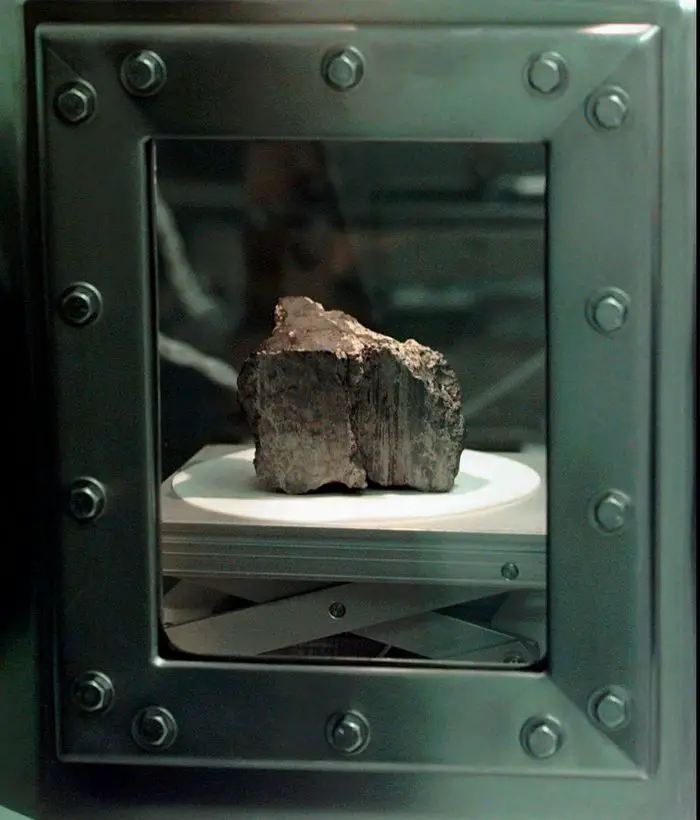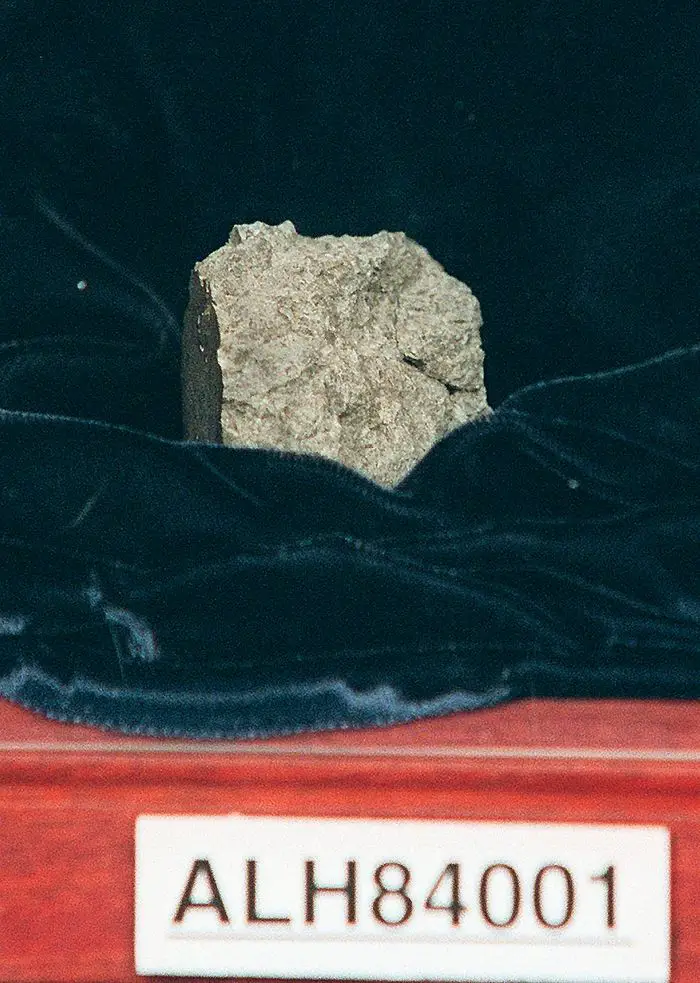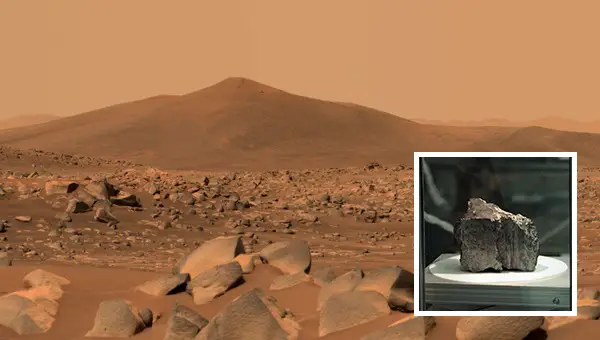There may yet be evidence of life on Mars, but the chances of finding it within a 4-billion-year-old meteorite that came to Earth decades ago have just become smaller.
According to a research published on Thursday in the journal Science, organic molecules identified in the 4-pound rock were created by water passing through the meteorite, most likely brackish or saline.
Unlike a previous notion, the chemicals were not placed there by living animals. However, the existence of the molecules in the rock suggests that the Red Planet is capable of producing the chemistry that may lead to life, according to Andrew Steele, an astrobiologist at the Carnegie Institution for Science who headed the study’s global team of scientists.
In an interview, Dr. Steele said, “The findings are really favorable.” “We have discovered a nonlife chemical process that produces possible life building components.”
The rock was discovered in Antarctica in 1984 and is thought to have been bounced off Mars’ surface and into space billions of years ago. In 1996, a team of NASA-led scientists stated that it looked to contain evidence of ancient Martian life, a notion that has since lost support for some experts as technology has progressed and scientists have retrieved even more accurate data.

Dr. Steele’s team identified and analyzed carbon-rich chemicals generated when water flowed through the heated rock billions of years ago and reacted with the meteorite’s minerals using minute sample slices—often smaller than a strand of human hair.
The findings, he added, provide a fascinating glimpse into comparable processes that may have occurred on Earth at the same time and may potentially contribute in the ongoing quest for signs of alien life.
“These data reveal a nonlife backdrop that we can utilize to hunt for biochemistries that are not comparable to those found on Earth, and that background can be used elsewhere,” Dr. Steele added, alluding to Mars, Enceladus, Europa, Saturn, and Jupiter’s worlds with subterranean seas.
Dr. Steele expressed his excitement for the acquisition of further Mars samples, which will be returned to Earth in the following years for further research.
The rock was given the name Allan Hills 84001 after the location in Antarctica where it was discovered in 1984.
On July 30, 2020, the National Aeronautics and Space Administration launched the Perseverance Mars rover from Florida. Last February, the robotic wheeled vehicle landed near Jezero, a crater on Mars. Its purpose is to look for indications of a previous life in the area around the crater, which was once a lake.
According to Dr. Steele, when the payload has gathered enough samples, it will be sent back to Earth in two separate trips that will arrive around 2030.

NASA did not reply to a request for an interview with the scientists that studied the meteorite in 1996, which was given the moniker Allan Hills 84001 after the location where it was discovered.
While Dr. Steele’s most current research does not corroborate all of the original conclusions, he believes the 1996 study was relevant to the discipline as a whole.
“The 1996 team motivated and catalyzed financing, turned discovering life into a public purpose, and spawned a generation of students who are engaged in this critical discussion,” he added.
Via – Wall Street Journal

